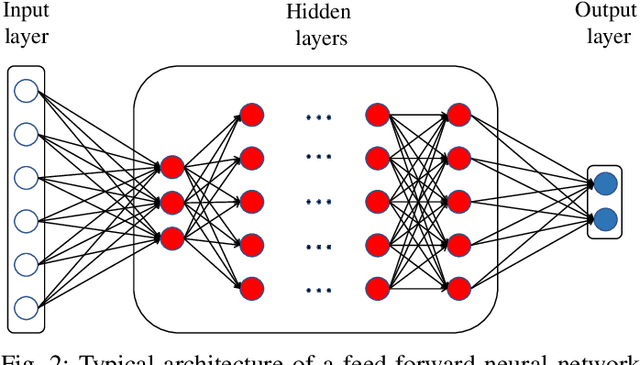Mohamed I. Ibrahem
Secure and Efficient Federated Learning in LEO Constellations using Decentralized Key Generation and On-Orbit Model Aggregation
Sep 04, 2023



Abstract:Satellite technologies have advanced drastically in recent years, leading to a heated interest in launching small satellites into low Earth orbit (LEOs) to collect massive data such as satellite imagery. Downloading these data to a ground station (GS) to perform centralized learning to build an AI model is not practical due to the limited and expensive bandwidth. Federated learning (FL) offers a potential solution but will incur a very large convergence delay due to the highly sporadic and irregular connectivity between LEO satellites and GS. In addition, there are significant security and privacy risks where eavesdroppers or curious servers/satellites may infer raw data from satellites' model parameters transmitted over insecure communication channels. To address these issues, this paper proposes FedSecure, a secure FL approach designed for LEO constellations, which consists of two novel components: (1) decentralized key generation that protects satellite data privacy using a functional encryption scheme, and (2) on-orbit model forwarding and aggregation that generates a partial global model per orbit to minimize the idle waiting time for invisible satellites to enter the visible zone of the GS. Our analysis and results show that FedSecure preserves the privacy of each satellite's data against eavesdroppers, a curious server, or curious satellites. It is lightweight with significantly lower communication and computation overheads than other privacy-preserving FL aggregation approaches. It also reduces convergence delay drastically from days to only a few hours, yet achieving high accuracy of up to 85.35% using realistic satellite images.
Detection of False-Reading Attacks in the AMI Net-Metering System
Dec 02, 2020



Abstract:In smart grid, malicious customers may compromise their smart meters (SMs) to report false readings to achieve financial gains illegally. Reporting false readings not only causes hefty financial losses to the utility but may also degrade the grid performance because the reported readings are used for energy management. This paper is the first work that investigates this problem in the net-metering system, in which one SM is used to report the difference between the power consumed and the power generated. First, we prepare a benign dataset for the net-metering system by processing a real power consumption and generation dataset. Then, we propose a new set of attacks tailored for the net-metering system to create malicious dataset. After that, we analyze the data and we found time correlations between the net meter readings and correlations between the readings and relevant data obtained from trustworthy sources such as the solar irradiance and temperature. Based on the data analysis, we propose a general multi-data-source deep hybrid learning-based detector to identify the false-reading attacks. Our detector is trained on net meter readings of all customers besides data from the trustworthy sources to enhance the detector performance by learning the correlations between them. The rationale here is that although an attacker can report false readings, he cannot manipulate the solar irradiance and temperature values because they are beyond his control. Extensive experiments have been conducted, and the results indicate that our detector can identify the false-reading attacks with high detection rate and low false alarm.
 Add to Chrome
Add to Chrome Add to Firefox
Add to Firefox Add to Edge
Add to Edge